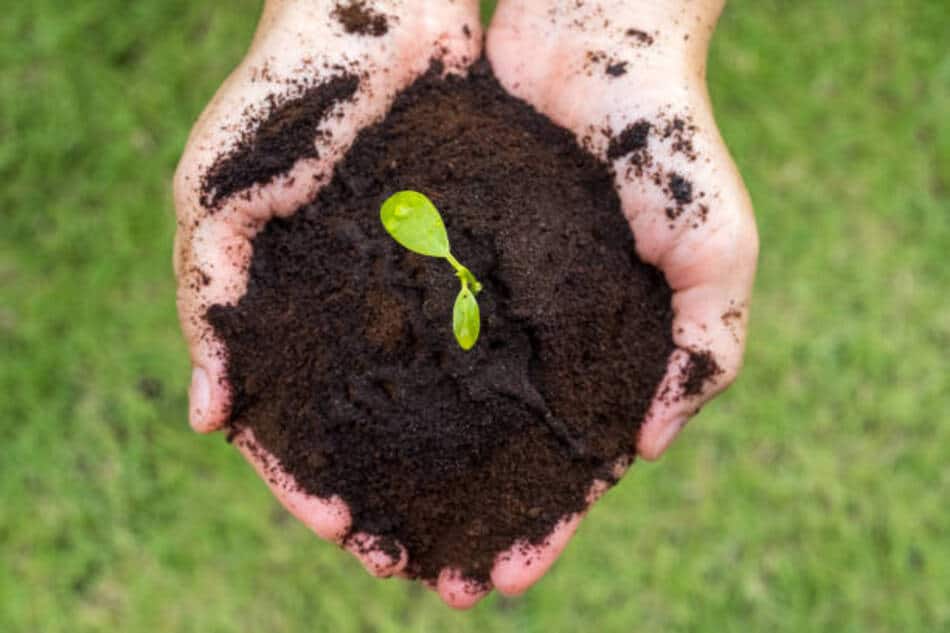Do you love waking up to the smell of fresh coffee brewing in the morning? Well, what do you do with the coffee grounds once you’re done with your cup? You can’t just throw them in the trash can! In this article, I will teach you how to properly dispose of coffee grounds so that they don’t end up harming the environment.
There are a few different ways that you can dispose of coffee grounds. One option is to compost them. This is a great way to reduce waste and help your garden grow! Another option for disposing of coffee grounds is to use them as mulch. Mulching helps to retain moisture in the soil and also prevents weeds from growing.
Coffee grounds are full of nutrients that can be beneficial to plants. Just make sure that you mix the coffee grounds with other organic matter, such as leaves or grass clippings, so that they don’t become compacted and difficult to break down. Just spread a layer of coffee grounds around your plants and shrubs, and you’re good to go!
Doing your part to reduce waste doesn’t have to be difficult! By following the simple tips discussed in this article, you can make a big difference in the fight against environmental pollution.
Keep Them Out of Your Septic System
Coffee grounds can wreak havoc on your septic system. The coffee beans themselves are seeds, and when they end up in your septic tank, they can start to grow. Additionally, the coffee grounds can clog up your pipes and drainage field. To avoid problems, it’s best to dispose of coffee grounds in the trash.
Compost
Another option is to compost them. Coffee grounds make excellent compost because they’re rich in nitrogen. Just be sure to mix them with other organic materials, such as leaves and grass clippings, so that they don’t compact and form a dense layer. And if you have pets, make sure they can’t get to your compost pile – caffeine is toxic to animals!

If you’re not into composting, another option is to simply throw your coffee grounds in the trash. They won’t break down in a landfill like other organic materials, but they will eventually decompose – it just might take a little longer. And, since coffee grounds are relatively lightweight, they won’t take up too much space in your garbage can.
Related: How To Store Used Coffee Grounds
Bedding
If you’re like me, you can’t stand the thought of wasting anything. So when it comes to coffee grounds, I want to make sure I’m doing everything I can to dispose of them in the most effective way possible.
If you have animals, you can also use coffee grounds as bedding for them. It’s a great way to recycle and reuse something that would otherwise go to waste. Just make sure they don’t eat too much of it!
A Healthy Hair Product
Do you love coffee? Do you love the smell of fresh-brewed coffee in the morning? If so, you’re not alone. Millions of people all over the world enjoy drinking coffee every day. But what most people don’t know is that coffee grounds can be used to improve your hair health! That’s right – coffee grounds can be used as a healthy hair product.
- Simply massage the grounds into your scalp for a few minutes
- Then rinse out with shampoo and conditioner
- You’ll notice softer, shinier hair immediately
A Natural Air Deodorizer
Coffee grounds can be used as a natural air freshener. All you have to do is put them in a bowl and set it out in the room you want to deodorize. The coffee grounds will absorb any bad odors in the air, leaving your home smelling fresh and clean.
If you have pets, you can also use coffee grounds to keep them away from certain areas of your home. Just sprinkle some coffee grounds on the ground or in a doorway, and your pets will stay clear. Coffee grounds can also be used to deter pests like ants and mice. Simply put some around any entry points into your home, and they’ll stay out!
Also Read: How To Make Coffee While Camping
Insect And Pest Repellent
Coffee grounds can be used as an effective insect and pest repellent. Simply sprinkle the coffee grounds around the perimeter of your home, or wherever you see pests congregating. The strong smell of coffee will deter them from entering your home. You can also use coffee grounds to keep ants and other crawling insects out of your house by sprinkling a line of grounds across doorways and windowsills.
If you have a problem with slugs or snails in your garden, coffee grounds can help there too. Just sprinkle some around plants that are being targeted and the creatures will stay away. Be sure to reapply after rain though, as the Grounds will lose their potency. Coffee grounds can also be used as fertilizer for acid-loving plants like tomatoes, roses, and azaleas. Simply mix used coffee grounds into the soil around these plants to give them a little extra boost.
Coffee Grounds for Gardening
Coffee grounds can be used as a mulch or fertilizer. They are rich in nitrogen and other nutrients that can help plants grow. Used coffee grounds can also help to repel pests and improve drainage in potting mix.

- When adding coffee grounds to the garden, it is important to do so in moderation.
- Too much coffee ground can make the soil too acidic for plants.
- It is best to mix coffee grounds with other materials such as compost or manure before using them in the garden.
Coffee grounds can also be used around the house in several ways. They can be used to clean surfaces, polish chrome fixtures, and even deodorize carpets! When disposing of coffee grounds, it is best to do so in a way that benefits the environment.
So there you have it! With all of these uses for coffee grounds, there is no need to throw them away! So next time you finish your cup of joe, think about how you can put those Grounds to good use. Your garden (and wallet) will thank you!
You May Also Like: Macchiato Vs Cortado: Which Is Better?
Bottom Line
If you’re looking for an environmentally friendly way to dispose of your coffee grounds, consider composting them. Coffee grounds are a great addition to any compost heap, and they’ll help to speed up the decomposition process. Just make sure that you don’t add too many at once, as this can cause the compost to become too acidic. Thanks for reading. See you next time 😊

